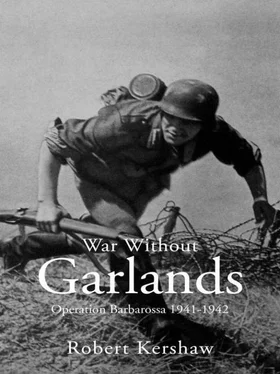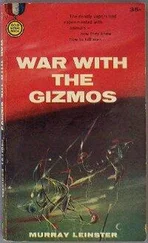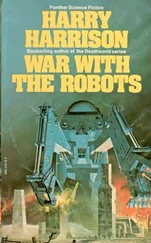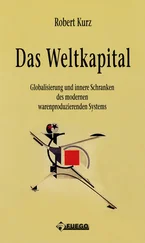Robert Kershaw - War Without Garlands
Здесь есть возможность читать онлайн «Robert Kershaw - War Without Garlands» весь текст электронной книги совершенно бесплатно (целиком полную версию без сокращений). В некоторых случаях можно слушать аудио, скачать через торрент в формате fb2 и присутствует краткое содержание. Город: Hersham, Год выпуска: 2010, ISBN: 2010, Издательство: Ian Allan Publishing, Жанр: military_history, на английском языке. Описание произведения, (предисловие) а так же отзывы посетителей доступны на портале библиотеки ЛибКат.
- Название:War Without Garlands
- Автор:
- Издательство:Ian Allan Publishing
- Жанр:
- Год:2010
- Город:Hersham
- ISBN:978-07110-3590-1
- Рейтинг книги:5 / 5. Голосов: 1
-
Избранное:Добавить в избранное
- Отзывы:
-
Ваша оценка:
- 100
- 1
- 2
- 3
- 4
- 5
War Without Garlands: краткое содержание, описание и аннотация
Предлагаем к чтению аннотацию, описание, краткое содержание или предисловие (зависит от того, что написал сам автор книги «War Without Garlands»). Если вы не нашли необходимую информацию о книге — напишите в комментариях, мы постараемся отыскать её.
War Without Garlands — читать онлайн бесплатно полную книгу (весь текст) целиком
Ниже представлен текст книги, разбитый по страницам. Система сохранения места последней прочитанной страницы, позволяет с удобством читать онлайн бесплатно книгу «War Without Garlands», без необходимости каждый раз заново искать на чём Вы остановились. Поставьте закладку, и сможете в любой момент перейти на страницу, на которой закончили чтение.
Интервал:
Закладка:
The final evening waiting on the Russo-German demarcation line in Poland is permanently etched in the memories of many who reflected these may be their final hours. Artillery Oberleutnant Siegfried Knappe saw that, ‘a few kilometres away, the village that would be our first objective lay sleeping, bathed in the comfort of soft moonlight’. He likened it to a beautiful painting. ‘The strong scent of pine needles permeated my consciousness as I wandered among the 180 men of my battery, checking things out.’ The prospect of combat clears the senses like a drug, throwing truths into sharp relief.
‘I became more aware of the men as individuals than I had ever been before. Some were timid, others were brash; some were gloomy, others easily amused; some were ambitious, others idlers; some were spendthrifts, others misers. The diverse thoughts that lay behind their helmets as they waited for battle only they could know… One soldier was humming softly to himself in meditation. Some were no doubt full of foreboding, and others were thinking of home and loved ones.’
Knappe was totally confident. ‘The men were strong and sure of themselves.’ (11)Veterans had their doubts but emotions were kept tightly under control. Hauptmann Hans von Luck, having survived the French campaign, followed the truism common to all soldiers when faced with the next. ‘Everyone tries to mobilise his mental forces,’ he explained, ‘and is ready to suppress negative experiences and assimilate even the slightest positive ones.’ After all, the French campaign ‘could not have turned out better,’ but ‘the euphoria of the past months had given way to a rather sober view’. His belief was that ‘even the young ones, those schooled in National Socialism, doubted that Russia could be defeated with idealism alone’. The following morning, therefore, they would do what soldiers had done from time immemorial prior to going to battle: ‘we set our minds on the present and were ready to do our “duty”.’ (12)
Such duties now focused the mind. Heinrich Eikmeier’s 88mm Flak gun was positioned next to the River Bug in the central sector.
‘During the evening before the war broke out, large numbers of telephone lines were laid to the gun; and in the morning there were many high ranking officers about, many of them unknown, including several generals. We were told our gun would provide the signal to open fire. It was controlled by stopwatch, exactly when the time was determined. When we fired, numerous other guns, both left and right would open up. Then war would break out.’
Eikmeier considered much later: ‘whether we fired the first shot in Army Group Centre – or for the entire Russian campaign – I do not know!’ (13)
Leutnant Hans-Jochen Schmidt’s unit occupied its assembly area within a depression at dusk. ‘Every man received 60 rounds of live ammunition,’ he remarked, ‘and the rifles from then on were loaded.’ The soldiers were tense; ‘nobody thought of sleep.’ Troops at this final stage of preparation for battle invariably consider loved ones, lying motionless, awaiting the signal to move up to assault positions. Schmidt’s men received a particularly poignant reminder of home. A radio receiver was broadcasting music.
‘In the Reich one did not know what was going on, and the radio played a lively dance tune which touched us to the core of our souls.’
The reality of their situation refocused their attention once again. ‘The march route had come alive with vehicle after vehicle.’ (14)
In Germany the weather had been hot. Berlin slept peacefully although hectic activity continued in the main army headquarters. The civilian population had no idea what was going on. ‘In addition to the already numerous rumours in circulation, new ones crop up daily with more and more detailed information,’ revealed a classified SS Secret Report on the Home Political Situation. It even quoted the rumour of a possible launch date of an offensive against the Soviet Union on 20 May; another tied Hitler’s visit to Danzig with a secret meeting with Molotov ‘on the high seas to settle the conflict between Germany and Russia by diplomatic means as in 1939’. Baltic volunteer battalions were alleged to be forming in Berlin. The rumours, the report claimed, ‘are caused predominantly by letters from soldiers at the Russian front.’ (15)There was awareness at home that letters were not reaching husbands and loved ones, but the sinister implication of a pending new campaign was missed. One wife wrote to her husband on 17 June, with a touching optimism still prevalent:
‘Darling, I hope you have got my letter. It is obvious from the way you are writing that you have received no post. Dearest love, that I cannot understand. Immediately I arrived back in Rheydt I wrote to you. That was on 8 June. Hopefully you will get it soon. But Josef you need not be sad, our wonderful time has yet to come. I will stay patient and wait for you.’ (16)
Another wife tragically missed her husband’s departure to the east before an anticipated weekend together. She continues in an inconsolable tone, apologising for the mistakes, because she is so devastated:
‘When I telephoned, a female voice said that you had departed that morning at 0830. I thought that my heart would stop, my darling, it is worse than I thought it would be. Tell me whether it was as bad for you and excuse the blots, they are tears!’ (17)
Topics concerning everyday life were the primary issues discussed: ‘Tommy’ air raids and clothing and ration cards. Most letters contained universal and understandable fears:
‘My loved one, I’m keeping my fingers crossed, you must and you will come back to your beloved wife and children. Darling, I hope you are not ill, how are your poor feet? My dear, I think of you day and night, because I can imagine how it will be for you if you are on a long march… You fight and must fight on to rescue your wife and children; we can thank you if the bombs fail to strike… I will never forget you, and will always remain true…’ (18)
Norbert Schultze, a Berlin composer, returned home at about midday on Saturday, 21 June, after an exhausting series of engagements, only to be summoned back immediately to the radio station by his director. He was tasked, with another colleague, Herms Niel, to participate in a competition ‘to write the German Nation’s signature tune for the Russian campaign’. They had two hours, after which the Propaganda Minister Goebbels, who had written the text, would make his choice. Both composers were shown into a room with a grand piano. Schultze won; Goebbels selected his tune and said ‘and then I would like to request that you participate in producing the concluding piece to our Russian fanfare’. ‘I beg your pardon?’ enquired Schultze. ‘Yes, don’t you know?’ responded Goebbels. Schultze did not. ‘No, I have heard nothing over the last few days. I have been inundated with work and composing.’ The Propaganda Minister played a record: Liszt’s Les Préludes. It had already been played three times on the wireless, but Schultze had never heard it. ‘Put that on the end,’ said Goebbels, ‘it will precede all the radio announcements.’ (19)It was the primary signature tune for forthcoming Wochenschau cinema newsreels and became the fanfare preceding important High Command announcements. It was to be the overture informing the German public they were at war with the Soviet Union. An artillery NCO wrote home:
‘And now to the situation. In three hours we will relay fire commands by radio which the batteries will receive to open fire on the Russian positions, that will destroy everything. You will meanwhile be peacefully asleep whilst we of the first wave will start the invasion of enemy territory. In any case, towards morning you, too, will know that the hour has arrived and you will be thinking of me even though this letter will not have arrived. I can imagine the surprise and at the same moment, dread, that will overcome you all. But you need have no worries, because everything is so well prepared here, hardly anything can go wrong.’ (20)
Читать дальшеИнтервал:
Закладка:
Похожие книги на «War Without Garlands»
Представляем Вашему вниманию похожие книги на «War Without Garlands» списком для выбора. Мы отобрали схожую по названию и смыслу литературу в надежде предоставить читателям больше вариантов отыскать новые, интересные, ещё непрочитанные произведения.
Обсуждение, отзывы о книге «War Without Garlands» и просто собственные мнения читателей. Оставьте ваши комментарии, напишите, что Вы думаете о произведении, его смысле или главных героях. Укажите что конкретно понравилось, а что нет, и почему Вы так считаете.












